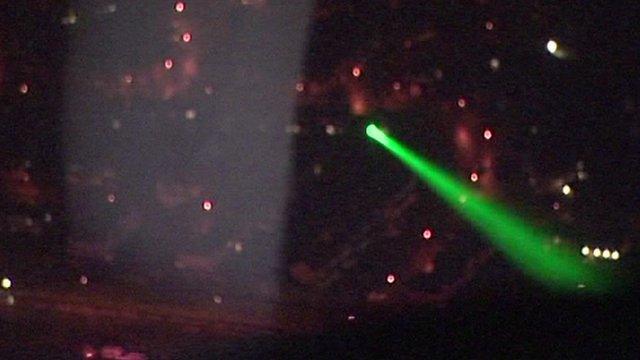Laser pen pilot attackers face jail under new law
- Published
In 2016 a laser pen forced a Virgin Atlantic flight to turn back
Shining laser pens at pilots, train and bus drivers, and other transport operators, will become a specific offence under government proposals.
The Department for Transport says offenders face fines of thousands of pounds or a jail sentence.
Since 2009 there have been about 1,500 attacks per year on aircraft.
A 2010 law introduced protections for pilots. The new legislation widens the protection while increasing penalties.
People currently convicted of "shining a light at an aircraft in flight so as to dazzle or distract the pilot" face fines of up to £2,500 under the Air Navigation Order.
If the distraction is deemed to be serious, offenders may face prosecution for reckless endangerment, which carries a prison sentence.
Growing threat
A DfT spokesman said: "This new law will make it even safer for aircraft travel as well as passengers using buses, taxis and trains."
He added the current law means police have to prove a person endangered the aircraft when committing the offence of shining a laser, while the new law will mean that police will only have to prove the offence of shining the laser.
Transport Secretary Chris Grayling said: "Shining a laser pointer at pilots or drivers is incredibly dangerous and could have fatal consequences.
"Whilst we know laser pens can be fun and many users have good intentions, some are not aware of the risks of dazzling drivers or pilots putting public safety at risk."
The first laser attack on an aircraft was reported in 2004 with more than 200 incidents annually by 2008.
The rate has increased substantially in recent years and similar attacks have been reported on train and bus drivers.
Steve Landells, flight safety specialist at the British Airline Pilots Association said: "Any move to give the police and authorities more powers to tackle this real and growing threat to flight safety is a good thing, and we are pleased that the government has included action on lasers in this bill."
In February 2016, a New York-bound plane was forced to turn back to London Heathrow Airport when a a laser beam hit the cockpit after take off, causing a "medical issue" for one of the pilots.
The incident prompted the British Airline Pilots Association to call on the government to classify laser pointers as offensive weapons, a plea later echoed by the Civil Aviation Authority.
The DfT said the new powers and penalties will be outlined in upcoming legislation.
- Published24 August 2016
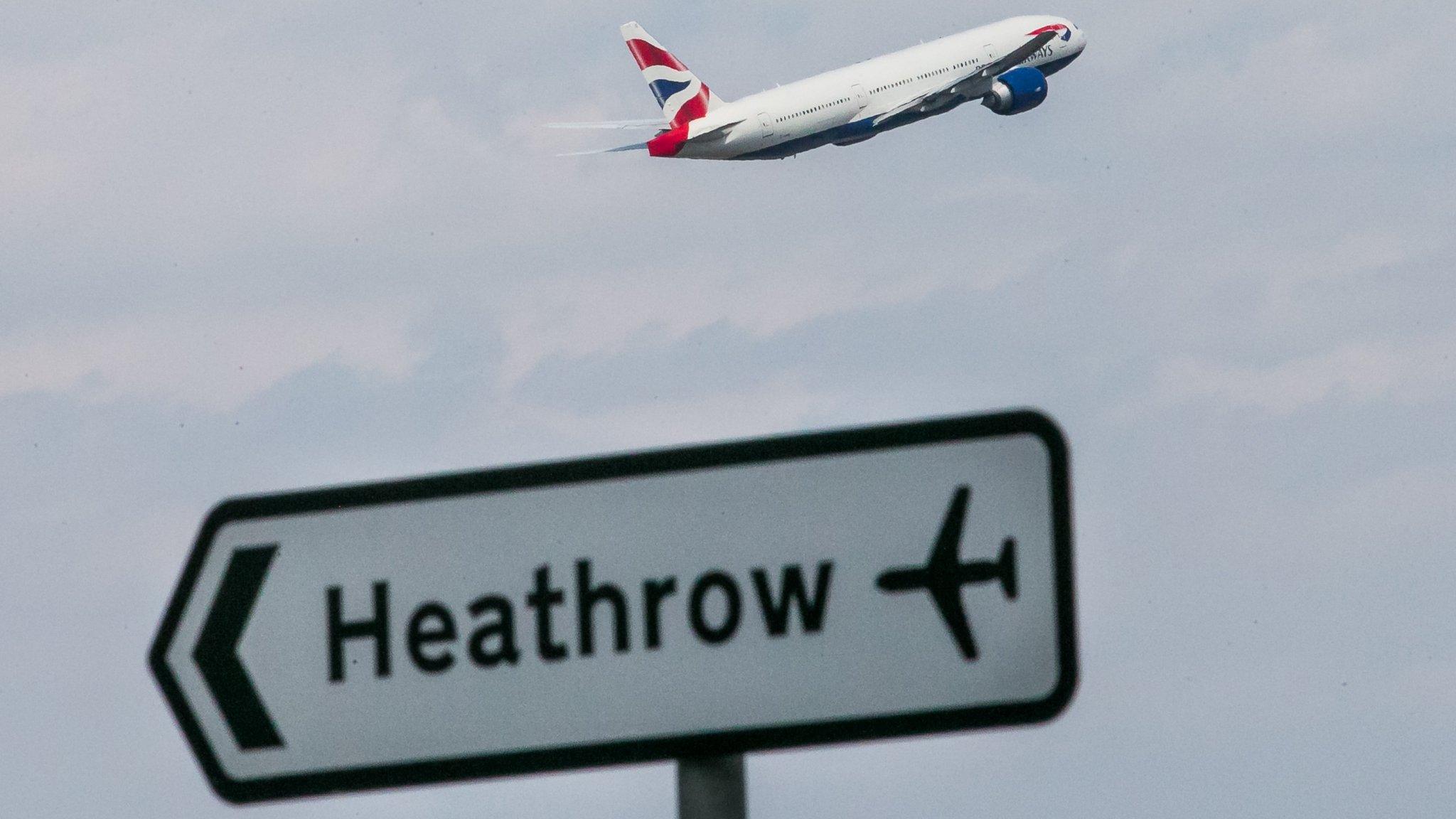
- Published15 February 2016
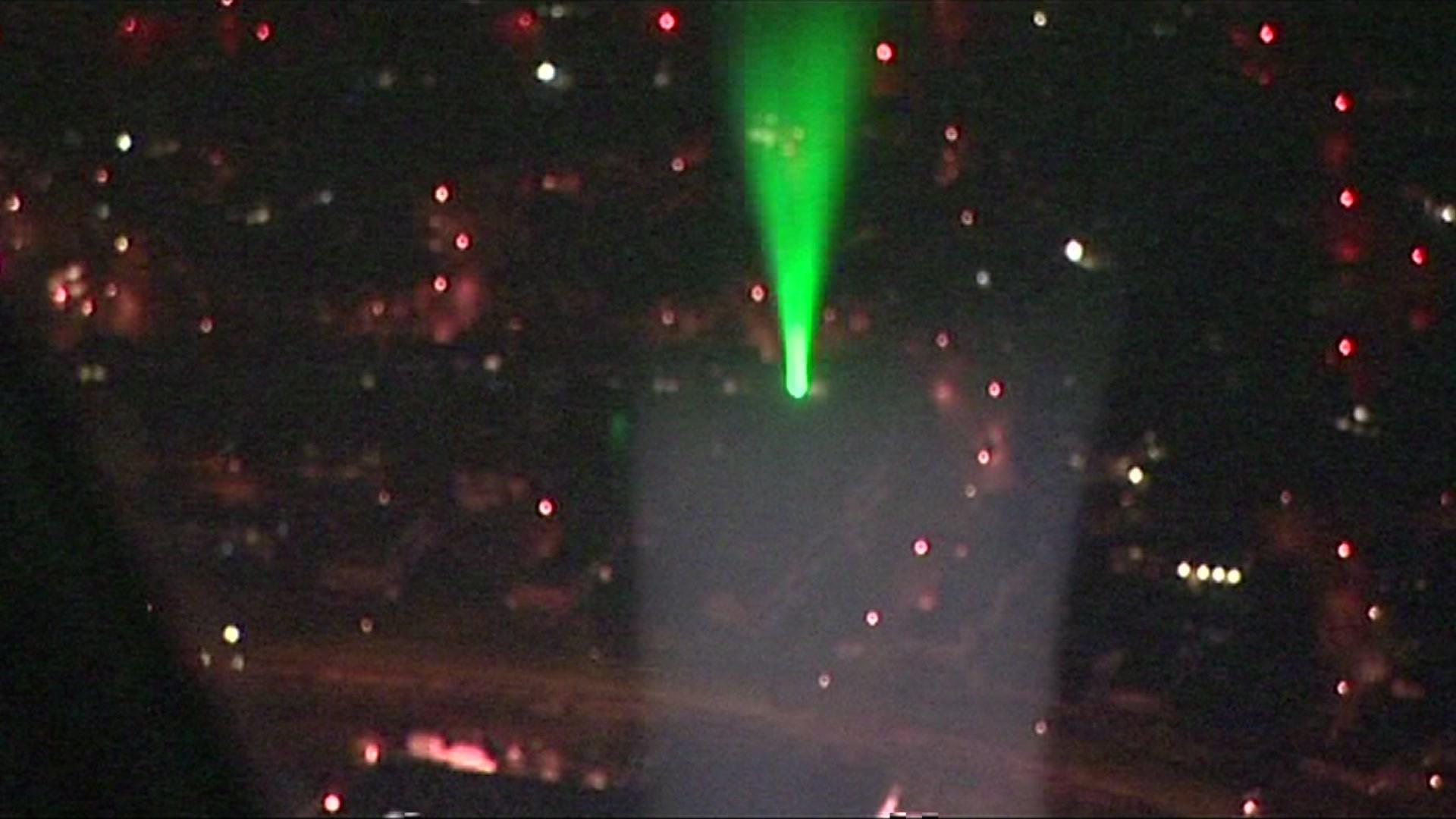
- Published15 February 2016
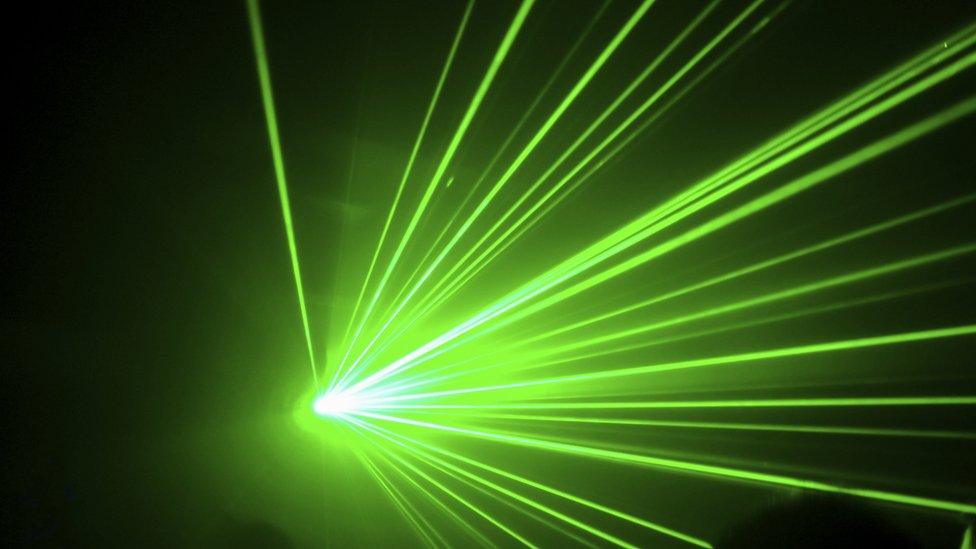
- Published15 February 2016
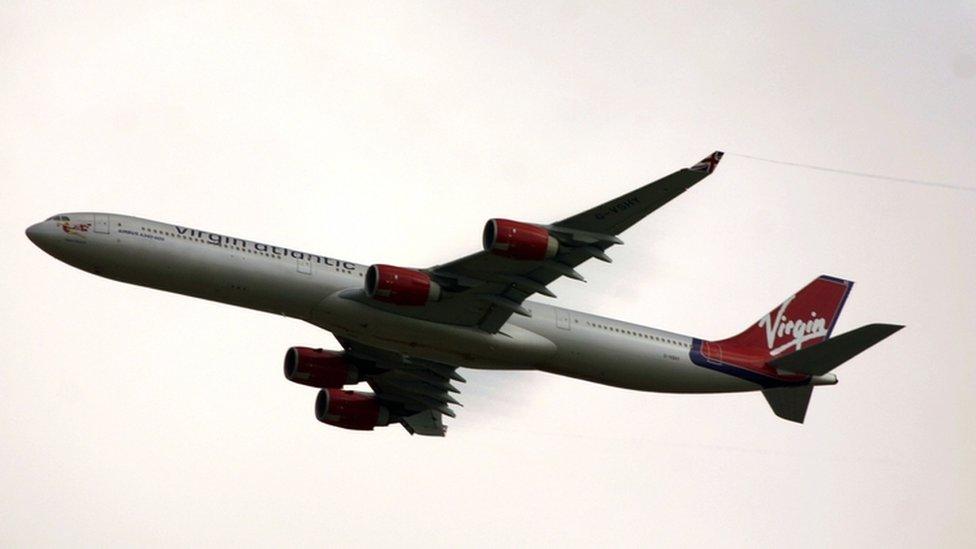
- Published20 October 2015
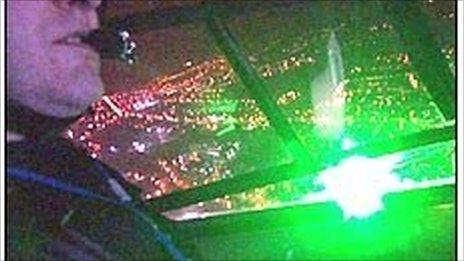
- Published15 February 2016
